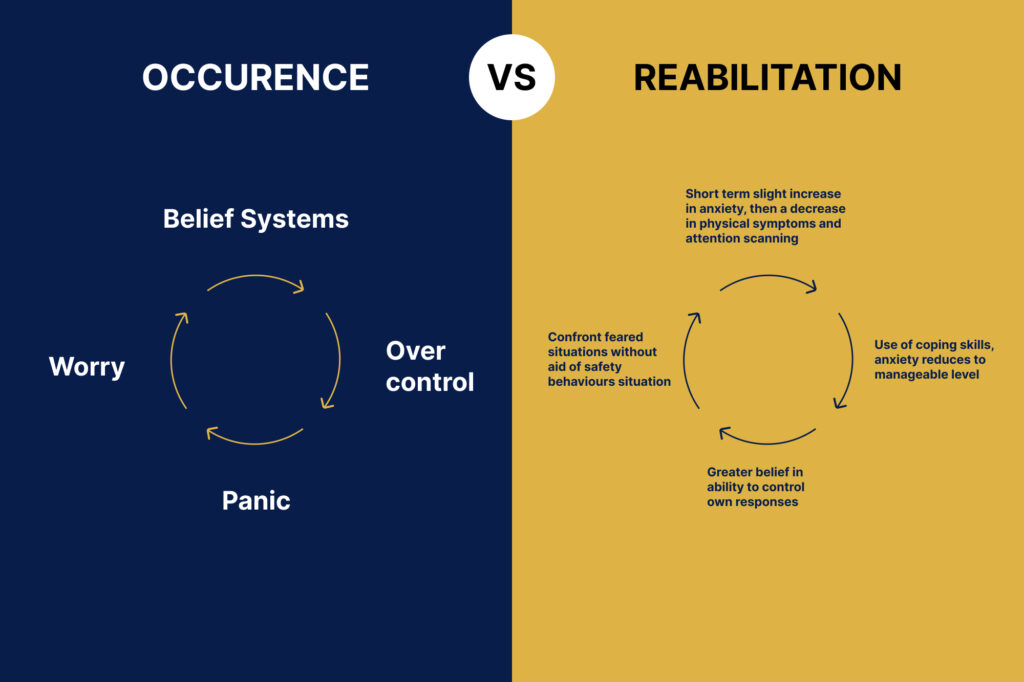In today’s fast-paced world, where stress and anxiety are often seen as commonplace, a significant concern for parents is the inadvertent transmission of these feelings to their children. Anxiety can be contagious, and without intending to, parents might find themselves passing on their anxieties to their kids, affecting their well-being and outlook on life. This article delves into practical strategies to mitigate this risk, aiming to foster a nurturing environment that promotes resilience and emotional health in children.
Understanding the Transmission of Anxiety
Anxiety is not just an individual experience; it can ripple through families, subtly influencing interactions and behaviors. Children, with their keen observational skills and inherent sensitivity to their parents’ emotional states, can pick up on anxiety cues. These cues might come in the form of overprotectiveness, constantly expressing worry about the future, or even reacting negatively to minor setbacks. Recognizing this transference is the first step in breaking the cycle and ensuring children develop healthier coping mechanisms.
Early Identification and Intervention
A critical component in preventing the transmission of anxiety to children is the early identification and intervention of parents’ own anxieties. Awareness of one’s anxiety triggers, and the impact they have on family dynamics is essential. Parents can benefit from mindfulness practices, therapeutic support, or stress management techniques to better regulate their emotional responses. By addressing their own anxiety, parents not only improve their well-being but also model effective coping strategies for their children.
Creating a calm, secure home environment plays a pivotal role in buffering children from the stressors of the outside world. This includes establishing stable routines, encouraging open communication where feelings and worries can be discussed without judgment, and promoting a positive outlook on challenges. Such an environment reassures children, reducing the likelihood of anxiety taking hold.
Fostering Emotional Intelligence and Resilience
Fostering emotional intelligence and resilience in children is crucial to preventing the transmission of anxiety from parents to their offspring. Emotional intelligence encompasses identifying, understanding, expressing, and managing emotions effectively. By cultivating this in children, parents equip them with the skills necessary to navigate the complex emotional landscapes of themselves and others. This process begins with parents modeling emotional intelligence themselves—acknowledging their emotions, expressing them in healthy ways, and demonstrating empathy towards others. When parents discuss their feelings openly and show understanding toward their children’s emotions, they lay the foundation for strong emotional intelligence in their kids.
Building resilience in children is about encouraging them to see challenges as opportunities for growth rather than insurmountable obstacles. This involves guiding them through experiences of failure and disappointment, not by shielding them from such experiences but by supporting them in understanding and learning from these situations. It’s about teaching children that it’s okay to fall as long as they learn how to pick themselves back up. This can be facilitated by setting realistic expectations, encouraging effort over perfection, and celebrating small victories along the journey. Activities that promote problem-solving and critical thinking skills also contribute to resilience by giving children a sense of mastery and control over their environment.
Moreover, resilience is strengthened when children are given autonomy within boundaries. This means allowing them the space to make decisions, take risks, and solve problems on their own within a safe and supportive framework. Encouraging independence helps children develop a sense of self-efficacy, the belief in their ability to influence outcomes in their lives, which is a critical component of resilience.
Another important aspect is the development of a positive self-image and self-compassion. Teaching children to appreciate their strengths and accept their weaknesses without harsh judgment fosters an internal environment of kindness and understanding. This internal support system becomes a buffer against anxiety as children learn to treat themselves with the same compassion and empathy they would offer a friend.
In sum, fostering emotional intelligence and resilience is a dynamic process that requires patience, consistency, and a willingness to engage with children on a deep, emotional level. By prioritizing these skills, parents can empower their children to face life’s ups and downs with confidence, reducing the likelihood of anxiety taking root. Through intentional practices and supportive parenting, the next generation can be equipped with the tools they need to thrive emotionally, even in the face of challenges.
Promoting Healthy Lifestyle Choices
Lifestyle factors significantly impact mental health. Ensuring that children have a balanced diet, engage in regular physical activity, and have sufficient sleep are foundational aspects of preventing anxiety. Parents can set a positive example by adopting these healthy habits themselves, creating a family culture that values and prioritizes well-being.
Seeking Professional Help When Needed
Seeking professional help when necessary is a pivotal step in managing and preventing the transmission of anxiety from parents to children. Recognizing when to seek this help and choosing the right professional for your family’s specific needs can significantly enhance the effectiveness of the support received. Here are some criteria to consider when selecting a mental health professional to ensure the best fit for your situation:
Specialization and Experience
- Expertise in Child and Adolescent Mental Health: Look for professionals with specialized training and experience in dealing with children and adolescents. Their understanding of developmental stages can provide insights tailored to your child’s specific age and needs.
- Familiarity with Anxiety Disorders: Given the focus on preventing the transmission of anxiety, it’s beneficial to choose a therapist or psychologist who has a strong background in treating anxiety disorders. Their expertise can offer targeted strategies and interventions.
- Experience with Family Dynamics: Professionals skilled in family therapy or those with a deep understanding of family dynamics can be particularly valuable. They can help address issues within the family system that may contribute to anxiety, ensuring that treatment encompasses both individual and collective needs.

Therapeutic Approach and Compatibility
- Evidence-Based Practices: Ensure the professional uses evidence-based therapeutic approaches known to be effective in treating anxiety, such as Cognitive Behavioral Therapy (CBT), Dialectical Behavior Therapy (DBT), or Acceptance and Commitment Therapy (ACT). These methodologies have been scientifically validated and are widely recognized for their effectiveness in managing anxiety.
- Philosophical Alignment: The therapist’s philosophical outlook on treatment should align with your family’s values and beliefs. Whether it’s a more traditional, structured approach or one that incorporates holistic practices, compatibility in this area can enhance the therapeutic relationship and outcomes.
- Personality and Communication Style: The therapist’s personality and how they communicate can significantly impact your comfort level and willingness to engage in the therapeutic process. Look for someone whose communication style feels respectful, clear, and empathetic.
Accessibility and Logistics
- Location and Availability: Consider the practical aspects of attending therapy sessions, including the therapist’s location and availability to schedule appointments at times that work for your family. Accessibility can play a crucial role in maintaining consistent engagement with therapy.
- Teletherapy Options: In light of increasing virtual services, check if the professional offers teletherapy. This can provide greater flexibility and convenience, especially for busy families or those living in remote areas.
Insurance and Financial Considerations
- Insurance Coverage: Verify whether the professional accepts your insurance and what the coverage entails, including the number of sessions and any out-of-pocket costs. Understanding the financial aspect upfront can prevent unexpected expenses and ensure continuity of care.
- Sliding Scale Fees: If insurance coverage is not an option, inquire about sliding scale fees based on income. Many therapists offer this to make therapy more accessible to a broader range of clients.

Choosing the right professional is a crucial step in effectively addressing anxiety within the family. Researching and considering these criteria can lead to a more favorable therapeutic experience, ultimately supporting the emotional well-being of both parents and children. Remember, seeking help is a sign of strength and a proactive step towards fostering a healthier, more resilient family dynamic.
Next Step In Your Path Forward
The journey to prevent passing anxiety onto children is both challenging and rewarding. By becoming more aware of their emotional states, creating a supportive home environment, fostering emotional intelligence and resilience, promoting healthy lifestyle choices, and seeking help when necessary, parents can significantly reduce the risk of their children developing anxiety. This proactive approach paves the way for raising emotionally healthy, resilient individuals equipped to face life’s challenges confidently. Start being one of them.








